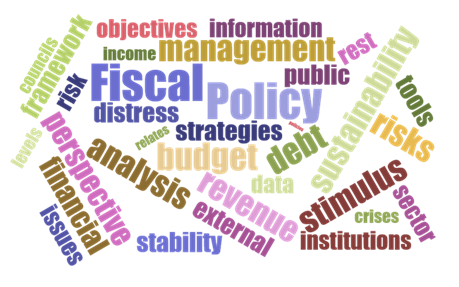Reforming Fuel Subsidies (RFS)

This course, presented by the Fiscal Affairs Department, explores recent developments in subsidy spending on fuel products, their macroeconomic impact, and the environmental and social implications. Building on country-specific case studies, the course elaborates on key elements of successful reforms, such as measures to protect low-income groups adversely affected by lower subsidies. The course also disseminates tools for measuring subsidies and assessing the distributional impact as well as alternative fuel pricing mechanisms that can help smooth the transmission of international fuel price changes to domestic prices while protecting the budget. Participants may be asked to make presentations on their own country’s experience in setting fuel prices and reforming subsidies.
Target Audience
Mid-level to senior officials at ministries of finance, other ministries, and government agencies involved in setting fuel prices or fuel subsidy policy.
Qualifications
Participants are expected to have a degree in economics or a related field. Proficiency in Microsoft Excel is desirable.
Course Objectives
Upon completion of this course, participants should be able to:
- Explain the different rationales for energy subsidies and how subsidies are measured.
- Describe the drawbacks of energy subsidies.
- Identify possible barriers to the reform of fuel subsidies.
- Design an effective reform strategy drawing on lessons from the experiences of other countries.
- Use tailored tools to measure fuel subsidies and estimate the impact of a fuel subsidy reform on household welfare, in order to inform the design of mitigating measures and guide the choice of alternative fuel pricing mechanisms.
Upcoming Offering
| Start date | End date | Location | Delivery Method | Session No. | Primary & (Interpretation) language | Apply |
|---|---|---|---|---|---|---|
| February 2, 2025 | February 6, 2025 | Kuwait City, Kuwait | In-person Training | CE 25.06 | English (Arabic) | Apply online by November 24, 2024 |
Monetary and Financial Statistics (MFSX)
English | October 15, 2024 - December 17, 2024 | Online Training | Course conducted online
Apply online by November 22, 2024
Nowcasting (NWC)
English | February 17-28, 2025 | In-person Training | New Delhi, India
Apply online by November 22, 2024
Selected Issues in the Regulation of Fintech (SIFR)
English (French, Portuguese) | January 13-17, 2025 | In-person Training | Ebene, Mauritius
Apply online by November 22, 2024
Managing Capital Flows: Macroeconomic Analysis and Policies (MCF)
English | February 10-21, 2025 | In-person Training | Singapore, Singapore
Apply online by November 22, 2024
Building Institutions to Fight Corruption (BIFC)
English (Russian) | March 3-7, 2025 | In-person Training | Vienna, Austria
Apply online by November 24, 2024


